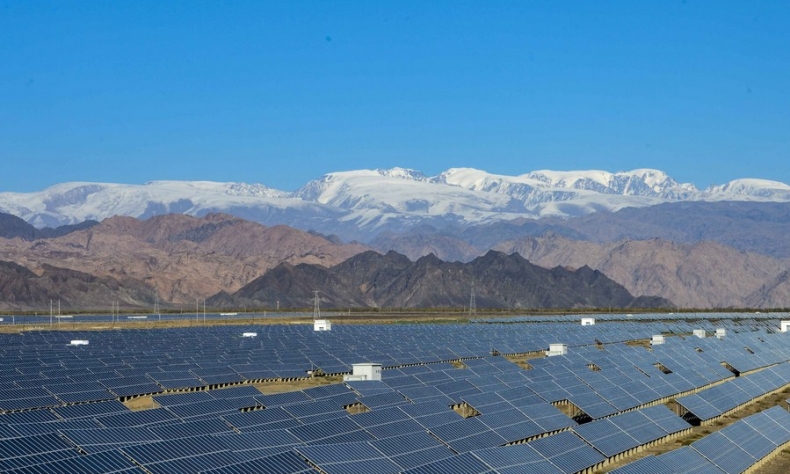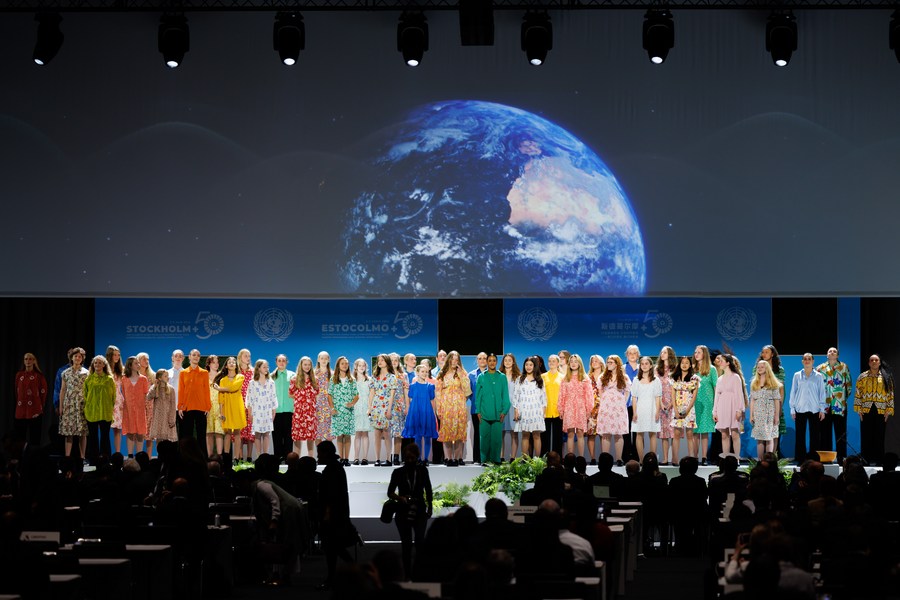Green Development or Decrease?

In the era of globalization, the international community should learn to coexist in harmony and cooperate in areas like security, development, climate and energy. After all, no person is an island entire of itself.
The concept of green development has become a worldwide philosophy in recent years. Global carbon dioxide emissions are declining and many countries have put forward clear timetables for realizing their carbon emission goals and achieving carbon neutrality.
However, what seemed a promising prospect is now at risk. Green development is, first of all, waning in Europe. Due to the Russia-Ukraine conflict, the former has limited its gas supply to Europe, sending gas prices soaring across the continent, which relies heavily on Russian gas imports. In fear of gas shortage and looking to stay warm this winter, some Europeans are stockpiling wood. In Poland, for example, the price of timber has doubled compared with that of last year, while in Germany and Belgium, it’s 2.5 times higher; and the continent’s consumption of fossil fuels like coal and diesel is on the rise. According to statistics from Noble Resources International Pte Ltd., a supplier of industrial raw materials, the import of thermal coal in 2022 for Europe might increase to 100 million tons, the highest since 2017.
Europe’s green development actions used to be game changers. According to the European Commission, in 2019, greenhouse gas emissions in the European Union Emissions Trading System declined by 8.7 percent compared with 2018, the biggest annual drop since 2005. According to Platts, a leading global provider of energy and metals information, the sharp decline of greenhouse gas emissions should be attributed to the development and use of clean energy like natural gas and renewable energy.
The EU has no shortage of green ambition. In January 2020, the European Commission put forward the European Green Deal plan, committing to an investment of over 1 trillion euro ($969 billion) in funds through various existing EU funding mechanisms. This green deal finance will support projects and the need for policy changes to reach the EU climate targets, eventually achieving a climate-neutral continent. In July 2021, the commission unveiled a comprehensive roadmap for the EU to realize the targets of reducing its net greenhouse gas emissions by at least 55 percent by 2030, compared with the 1990 level, and becoming climate-neutral by 2050, dubbed “Fit for 55.”
However, due to the shortage of gas supply and rising demand for coal, timber and diesel, reducing the reliance on high-polluting fossil fuels has become a matter of all talk and no action, consequently reversing the trend of declining greenhouse gas emissions.

The EU, the United States and China constitute the primary force driving global green development. However, with Europe’s green cause slowly ebbing, climate cooperation between China and the U.S. was unfortunately undermined by Nancy Pelosi’s Taiwan trip in early August.
To prevent global green development efforts from slipping into slumber, the most effective solution would be to intensify international cooperation, exemplified by the Chinese contribution of wisdom like the concept of a community with a shared future for humanity and the Belt and Road Initiative, a proposal that aims to boost connectivity along and beyond the ancient Silk Road routes.
No country can remain intact amid common crises facing humanity such as more and more extreme weather events and the COVID-19 pandemic. The same goes for global green development. The international community should try to enhance efficiency and fairness in global progress by focusing on the accelerated implementation of the United Nations 2030 Agenda for Sustainable Development to reach a stronger, greener and healthier global development. Hegemony, disintegration and hostility will only incur disaster, the Russia-Ukraine conflict being a prime example thereof. This war has not only produced droves of Ukrainian refugees, but subjected ordinary people in Europe to a gas crisis impacting daily expenses and dragged down Europe’s green evolution.
In the era of globalization, the international community should learn to coexist in harmony and cooperate in areas like security, development, climate and energy. After all, no person is an island entire of itself.
 Facebook
Facebook
 Twitter
Twitter
 Linkedin
Linkedin
 Google +
Google +










